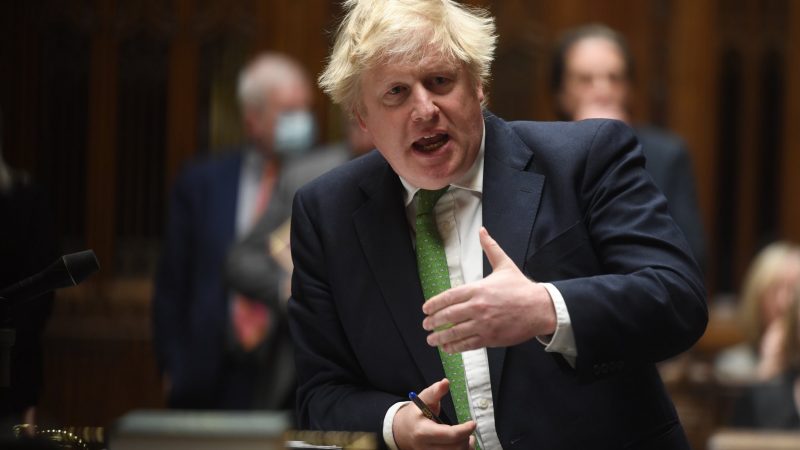
You may have heard this one before: Boris Johnson’s actions have not matched his rhetoric. The Prime Minister had given the impression that the UK would have the toughest response to Russian aggression towards Ukraine, a ‘world-beating’ reaction even, but the sanctions that he announced yesterday were criticised by MPs from all parties. Speaking in the House of Commons, Johnson named five Russian banks and three high-net-worth individuals to be affected by new sanctions, including frozen assets and a UK travel ban. That was it. Can such a set of measures really be described as a “barrage”?
Keir Starmer welcomed the development but told the Prime Minister sitting opposite on the green benches that he “must be prepared to go further” as “a threshold has already been breached”. The Labour leader said the UK should “respond with a full set of sanctions now” – and specifically recommended preventing Russia Today from broadcasting around the world, in another effort to distance himself from the previous leadership. Starmer’s comments were echoed by Lib Dem leader Ed Davey, plus other Labour, opposition and Tory MPs. Some of the tabloids have reflected this frustration on their front pages today.
Liz Truss had the task of defending the sanctions on the media this morning. The government’s argument is two-fold: we are acting in concert with our allies; and we don’t want to be left with nothing more to respond with in case of a full-scale invasion. But this doesn’t sound much like the pioneering ‘Global Britain’ we’ve heard about. Is Johnson opting for this “escalatory package” partly because the Conservative Party has enjoyed Russian money and the company of people close to Vladimir Putin’s government?
The wife of a former Putin finance minister paying £160,000 for a game of tennis with Johnson is just one of many examples that some would say explain the incremental approach being taken. (When this point was raised by Labour’s Tan Dhesi in the chamber yesterday, the Prime Minister responded defensively and warned of “casual Russophobia”.) Even if coordination with allies is a factor, the UK is in a unique position thanks to the London ‘laundromat’, and surely these increments did not have to be quite so small.
Sign up to LabourList’s morning email for everything Labour, every weekday morning.



More from LabourList
‘Labour won’t stop the far right by changing leaders — only by proving what the left can deliver’
‘Cutting Welsh university funding would be economic vandalism, not reform’
Sadiq Khan signals he will stand for a fourth term as London Mayor